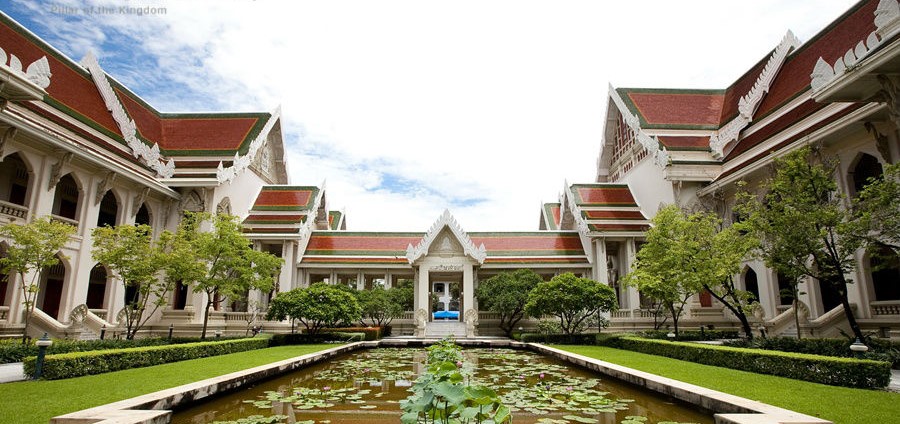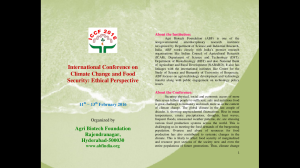Asia-Pacific Computing and Philosophy 2009 will be held on October
1st-2nd, 2009 in Tokyo, Japan. The conference will be hosted at the
University of Tokyo’s Sanjo Conference Hall. Keynotes speeches will be
given by Professor Hiroshi Ishiguro (Osaka University) and Professor
Shinsuke Shimojo (Caltech). This year AP-CAP 2009 will be held in
conjunction with the Devices that Alter Perception workshop, which
will form a special track.
The conference invites papers from philosophy, computer science,
robotics, and media arts. Practitioners of these and related fields
like artificial intelligence, ethics, human-computer interaction, and
society-technology studies will debate and demonstrate new research.
The conference will foster a scholarly dialogue between designers and
critics of computing systems.
TIMELINE
• July 15th, 2009: Deadline for abstract submission
• August 15th, 2009: Abstract acceptance notification
• September 1st, 2009: Early registration deadline
• September 15th, 2009: Camera-ready papers due
• September 21st, Papers available online
• October 1st-2nd, 2009: AP-CAP 2009 Conference
CONFERENCE FORMAT
The conference will consist of parallel tracks spanning a number of
topics of relevance to both computing and philosophy. Abstracts should
be written specifically with one of the conference’s eight tracks in
mind. Abstract reviews will be double-blind (both for authors and
reviewers).
ONLINE MATERIALS
The call for papers, information for attendees, Word and LaTeX
templates, online paper submission form and registration are all
hosted at:
http://ia-cap.org/ap-cap09/
Following acceptance, papers will be made available online for
commentary and also public voting in order to award the AP-CAP 2009
best paper prize.
SUBMISSIONS
Authors are invited to submit an extended abstract limited to 1,000
words. The deadline for abstract submission will be July 15th, 2009 at
23:59 GMT. At submission time, authors should indicate a track for
abstract consideration. Camera-ready papers are due on September 15th
and should be A4 paper size and less than 10 pages and under 2
megabytes in size.
TRACKS
A total of eight tracks covering diverse topics will form the program
of AP-CAP 2009. The track topics and organizing chairs are listed
below.
Devices that Alter Perception
Track Chairs: Jonathan BIRD & Yvonne ROGERS
Devices such as implants, wearable computers, sensory substitution
systems and neural interfaces change the way that a user perceives the
world. This interdisciplinary track focuses on systems whose purpose
is to alter a user’s perception by extending their senses or body. The
goals are to: (1) better understand the role played by sensory and
bodily extension devices in the process of perception; (2) facilitate
the development of extension devices by sharing designs; and (3)
consider how empirical experiments with sensory and bodily extension
devices can further philosophical and psychological enquiry into
perception and cognition. Participants can submit papers and/or
demonstrate devices and we welcome submissions from a broad range of
disciplines: philosophy; psychology; HCI; engineering; and the arts.
Intercultural Information Ethics
Track Chair: Soraj HONGLADAROM
As the information and communication technologies are spreading all
over the globe, there is a concern over how the technologies have
created ethical problems that are related to cultures. The track will
continue what has been done in previous CAP conferences in searching
for the multifaceted ramifications resulting from the interaction
between the technologies and cultures, especially, but not limited to
ethical ones. For example, papers might seek to investigate how
ethical problems arising from the technologies could be justified
through various strands of Asian philosophies, whether there are any
problems unique to Asia, or they might examine the problem of
universality of logic across cultures. Papers dealing with other
topics but falling within the broad theme of the track will be
considered too.
Cognitive Philosophy
Track Chair: Kayoko ISHII
Human beings are highly social animals. Faculties to evaluate social
phenomena should have largely influenced the evolution of their
cognitive systems and vice versa. In actual societies, however, there
are so many and diverse factors and interactions of factors to be
taken into account. Moreover, the strength and significance of
interactions may occasionally change according to time and contexts.
Social members have to cope with these dynamics. It seems impossible
to consider every possibility. Indeed human beings do not. What makes
human heuristics possible? It is expected in this track that
participants from different disciplines tackle this question together.
Now we know that there is cognitive diversity among social members.
Some may feel comfortable at rationalizing the world. Others may be
rather astute in emotional maneuver. The future of facilitating
methods would be also discussed so that different members of a society
can be entrained in the symbiosis at any rate and keep the society
going on.
Privacy and Technology
Track Chair: Shin’Ichi KONOMI
Computing technologies are increasingly used in our everyday life,
making it possible to unobtrusively capture, store, integrate, copy,
and use detailed personal information. In the past several years, the
online world has changed with the rise of blogs, social networking
sites, and other Web 2.0 services, the physical world has also changed
with the increased uses of surveillance cameras, GPS receivers, RFID
tags/readers, and networked wireless sensors. Moreover, cars and
pedestrians can now use in-vehicle devices or mobile phones to capture
data that can cause real privacy concerns (cf. Google Street View).
Technology and Privacy Track provides a forum for sharing ideas to
better understand today’s privacy problems in relation to new and
traditional information technologies and practices, to critique
existing privacy-enhancing technologies, and to propose design
guidelines and solutions for a sociotechnical infrastructure of the
future.
Social Construction of the Self
Track Chair: Ken MOGI
The self is a phenomenologically salient and functionally important
aspect of human cognition. The discovery of the mirror neurons (i.e.,
cells in the prefrontal cortex representing actions of the self and
others) has added a new and important dimension to the empirical
investigation into this fundamental aspect of existence. Findings in
cognitive neuroscience have revealed how the self is constructed
through the interaction with others. The self is a socially
constructed, embodied phenomenon. Various aspects of cognition, e.g.,
active vision, sensori-motor coordination, perception of time, body
image, emotion, and memory, make sense only in reference to the self.
Here experts from neuroscience, philosophy, artificial life, physics
and other fields discuss the newly emerging science of the self. The
session will be empirically based while trying to be theoretically
enterprising at the same time.
Hybrid Culture
Track Chair: Tomoe MORIYAMA
During the course of the past centuries, human knowledge and culture
slowly crystallized into more or less separated disciplines
(engineering, medicine, science, arts, etc). Today, these boundaries
seem to be rapidly blurring to give rise to new, hybridized,
interdisciplinary “cultures” (of which “media arts” may be just one
example). The Hybrid Culture track will specially focus on the
analysis of today’s creative chaos and on new approaches to our
perception for realizing the externalization of structural
knowledge—through theoretical discussions or concrete examples. In a
word: we expect your unique vision for a paradigm shift of art and
technologies, science and media.
Roboethics
Track Chair: Jorge SOLIS
Nowadays with recent technological breakdowns in developing human-like
robots, medical robots, etc.; it is possible to conceive intelligent
machines which can autonomously perform specific tasks. More recently,
the introduction of personal robots designed to coexist with humans is
becoming closer to the reality. Therefore, new challenges are seen in
introducing robots to other applications fields out of the industry.
The goals of the track are to: (1) understand the ethical, social and
legal aspects of the design, development and employment of robots (2)
engaging in a critical analysis of the social implications of robots
(3) increase the convergence of roboticists, computer scientists,
philosophers, etc.
Transhumanism
Track Chair: Ryo UEHARA
This track aims to clarify and examine the radical idea of
“Transhumanism” from technological, social, historical, cultural,
ethical and philosophical aspects. Transhumanism is an emerging claim
like the following. Many kinds of science and technology will develop
quickly in the near future, including neuroscience, biotechnology,
nanotechnology, information technology, or the convergent technology
of these disciplines. These technological developments will enable us
to enhance or extend our human traits and capabilities, for example,
perceptions, emotions, intelligence, and longevity. Then, through
technological enhancement, we could and ought to transcend our current
human conditions to beings that are “more than human.” It does not
seem, however, so clear exactly what Transhumanism claims in
theoretical senses. So, this track will deal with the topics like:
prediction on the development of technologies relevant to
Transhumanism; ethical impacts of technological enhancement in
general; philosophical foundations of Transhumanism, such as the
theory of value, or philosophy of mind.
ORGANIZERS
AP-CAP 2009 is sponsored by the International Association for
Computing and Philosophy. The conference is organized by the
University of Tokyo Meta-Perception Research Group, Oxford University
Information Ethics Research Group, and University of Hertfordshire
Group in Philosophy of Information.
Conference Chair: Masatoshi Ishikawa
Program Chairs: Alvaro Cassinelli & Carson Reynolds
Program Committee: Ezendu Ariwa, Jonathan Bird, Charles Ess, Soraj
Hongladarom, Kayoko Ishii, Shin’Ichi Konomi, Ken Mogi, Tomoe Moriyama,
Yvonne Rogers, Jorge Solis, Sundar Sarukkai and Ryo Uehara.
IACAP MEMBERS
Attendees who are members of IACAP will enjoy a discounted conference
fee. We encourage interested parties to join IACAP prior to the
September 1st early registration deadline. You can find more
information about membership at the IACAP website:
http://ia-cap.org/membership.php
REGISTRATION
On-line registration will be available at the AP-CAP 2009 website:
http://ia-cap.org/ap-cap09/attending.php
The conference registration fees provide a discount for early
registration (before September 1st) as well as a discount for IA-CAP
members. Registration fees will be payable in US dollars. In the case
of on-site registration we will accept credit card payment or cash.
Early Registration (September 1st deadline) – 375 USD
IACAP Member Registration – 325 USD
Late / On-Site Registration – 425 USD




